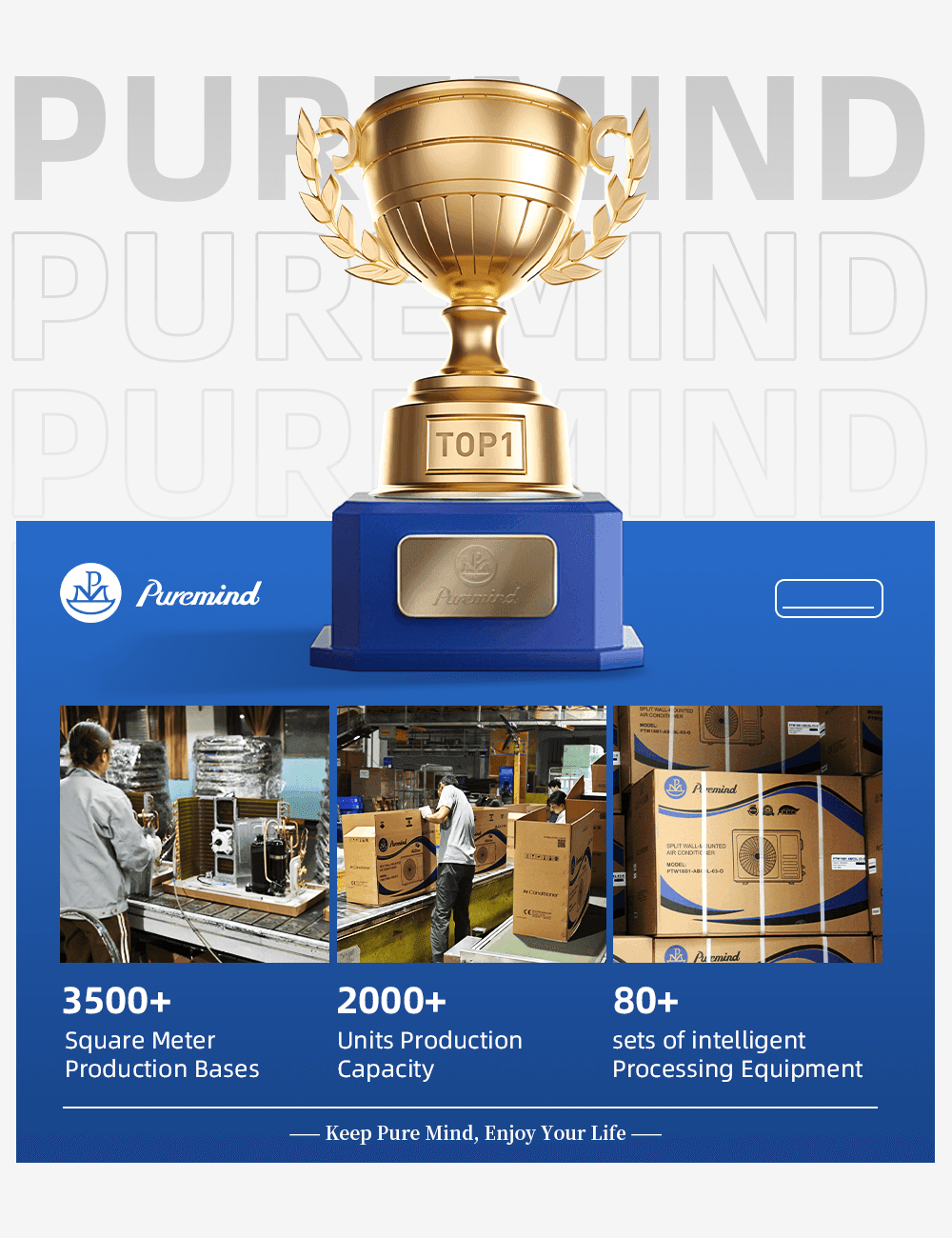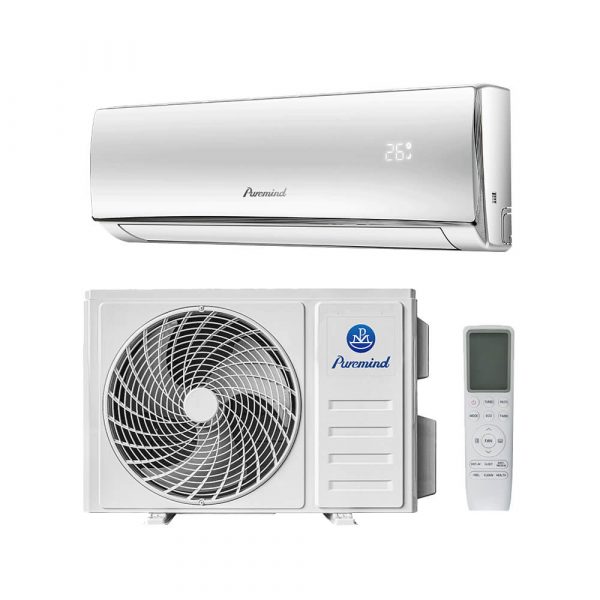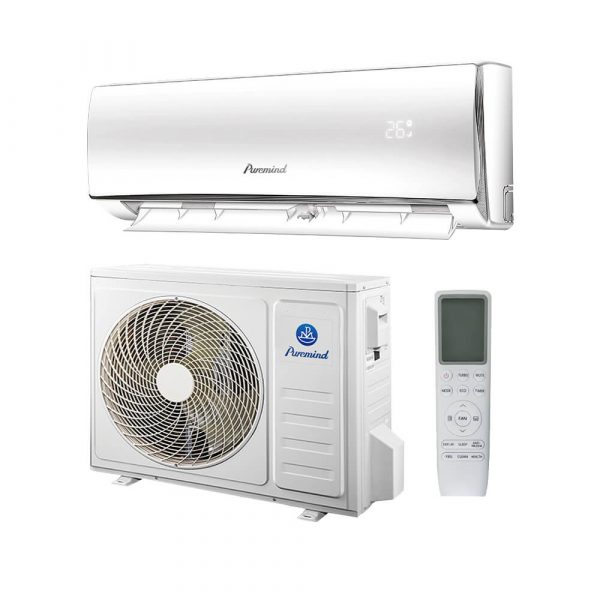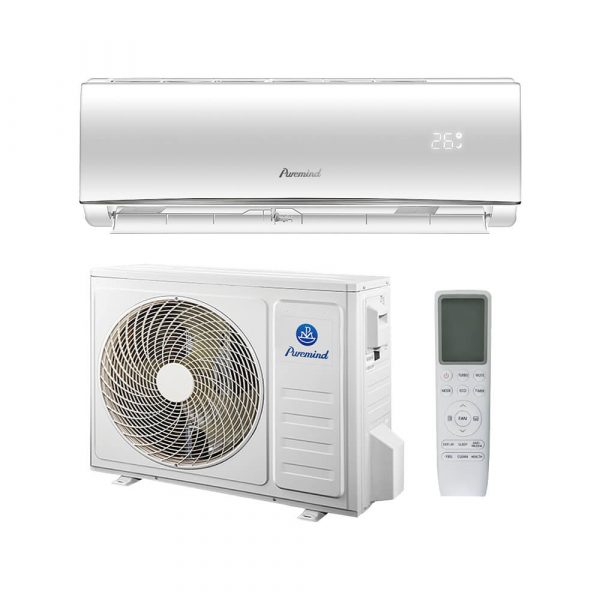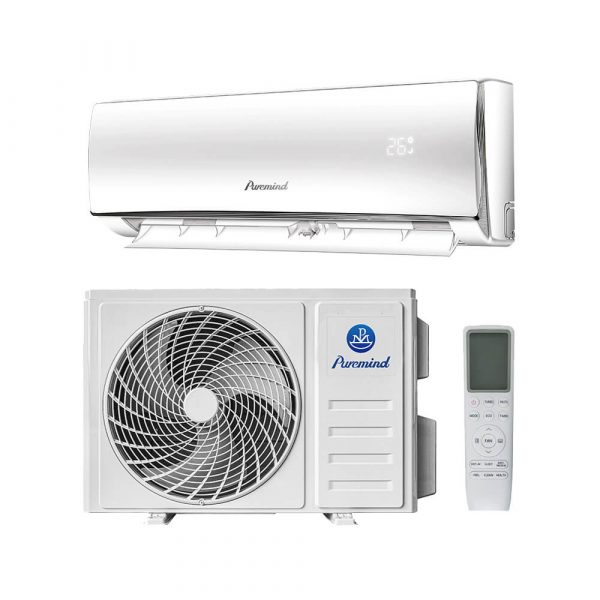Inverter Split System Air Conditioner Guide: Efficiency, Benefits, and Installation
The inverter split system air conditioner has become one of the most popular solutions in the HVAC industry, especially for wholesalers, suppliers, and distributors seeking energy-efficient and high-performance cooling options. This comprehensive guide will explain how inverter technology works, its benefits, installation requirements, and why it has become a preferred choice for both residential and commercial applications.
What Is an Inverter Split System Air Conditioner?
An inverter split system air conditioner is a type of HVAC unit that uses inverter technology to regulate compressor speed. Unlike traditional fixed-speed systems that operate in on/off cycles, inverter systems adjust the compressor motor speed continuously, delivering precise temperature control and higher energy efficiency. These systems usually consist of an indoor unit and an outdoor compressor, connected via refrigerant lines.
How Inverter Technology Works
Traditional air conditioners use a fixed-speed compressor that shuts on and off when the room temperature changes. This stop-start process consumes more power and creates uneven cooling. In contrast, inverter technology adjusts the compressor speed dynamically. When the target temperature is reached, the system reduces its speed rather than shutting down completely, maintaining a stable indoor climate and lowering energy consumption.
Key Features of Inverter Split System Air Conditioners
- Variable-speed compressor for precise cooling
- Lower energy consumption compared to non-inverter models
- Reduced temperature fluctuations
- Quieter operation
- Extended compressor lifespan
Benefits of Using an Inverter Split System Air Conditioner
The demand for inverter-based systems has grown significantly in the past decade. For wholesalers and distributors, offering these units brings added value to customers seeking advanced cooling solutions.
1. Energy Efficiency
One of the most important benefits of an inverter split system air conditioner is its superior energy efficiency. Studies show that inverter units consume 30%–50% less energy than conventional models. By adjusting compressor speed instead of switching on and off, they optimize power consumption, leading to lower utility costs.
2. Enhanced Comfort
Unlike non-inverter systems that often create sudden bursts of cold air, inverter units maintain a consistent temperature. This ensures stable indoor comfort, making them suitable for both residential and office spaces.
3. Eco-Friendly Operation
Because of their reduced energy demand, inverter systems contribute to lower greenhouse gas emissions. Many models also use eco-friendly refrigerants that comply with modern environmental regulations. According to Energy Star, inverter-based systems play a vital role in reducing carbon footprints while delivering effective cooling performance.
4. Cost Savings
While inverter systems may have a higher upfront cost, the long-term savings in electricity bills make them an excellent investment. For commercial distributors, highlighting these long-term benefits is a powerful sales strategy.
5. Longer Equipment Life
Because inverter compressors operate at variable speeds and avoid frequent stop-start cycles, mechanical stress is reduced. This increases durability and reduces maintenance needs, offering additional value to customers.
Installation of Inverter Split System Air Conditioners
Proper installation is crucial for maximizing efficiency and ensuring system longevity. Distributors and contractors should follow best practices to guarantee customer satisfaction.
Step-by-Step Installation Process
- Site Assessment: Evaluate room size, insulation, and heat load to determine the correct unit capacity.
- Indoor Unit Placement: Install the indoor unit at a central location for even air distribution.
- Outdoor Unit Positioning: Place the compressor on a stable surface with proper airflow and minimal exposure to direct sunlight.
- Refrigerant Piping: Connect indoor and outdoor units using insulated refrigerant pipes to prevent energy loss.
- Electrical Connections: Ensure wiring complies with safety standards and manufacturer guidelines.
- Testing: Run performance tests to verify proper cooling and efficiency.
Common Mistakes to Avoid
- Incorrect sizing of units for the room
- Poor insulation of refrigerant lines
- Improper placement of outdoor units
- Skipping vacuuming process during refrigerant charging
Applications in Residential and Commercial Settings
The inverter split system air conditioner is versatile and widely applicable in various environments. Wholesalers and distributors should emphasize these use cases to target different market segments.
Residential Use
In homes, inverter systems provide quiet, efficient, and reliable cooling. Families value the stable temperature and cost savings on energy bills, making these units an attractive choice for residential projects.
Commercial Use
In offices, shops, and hospitality facilities, inverter systems provide both cooling and heating capabilities, ensuring year-round comfort. Their energy efficiency also appeals to businesses aiming to cut operational costs.
How to Choose the Right Inverter Split System Air Conditioner
When advising customers, wholesalers and suppliers should guide them based on specific needs, including capacity, features, and budget.
Important Factors to Consider
- Room Size: Ensure proper BTU capacity for the area.
- Energy Efficiency Ratings: Look for Energy Star-certified models.
- Noise Levels: Quieter models improve comfort.
- Smart Features: Wi-Fi connectivity and programmable settings add convenience.
- Warranty and Support: Check for extended warranties and strong after-sales service.
Why Distributors Should Stock Inverter Split System Air Conditioners
The HVAC industry is rapidly shifting toward sustainable and high-performance products. Distributors who offer inverter split system air conditioners will position themselves as forward-thinking suppliers, catering to the growing demand for eco-friendly and cost-effective solutions.
Future Trends in Inverter Air Conditioning Technology
Emerging trends such as smart controls, IoT integration, and advanced refrigerants will shape the future of inverter systems. Customers are increasingly looking for solutions that provide not only comfort but also smart energy management. Staying updated with these trends will help wholesalers and distributors remain competitive.
Conclusion
In conclusion, the inverter split system air conditioner is a modern, efficient, and eco-friendly solution for residential and commercial cooling needs. Its energy savings, durability, and consistent performance make it a must-have product for HVAC distributors and suppliers. As technology advances and customers demand smarter, greener solutions, inverter systems will continue to dominate the market.
For wholesalers, suppliers, and distributors, stocking inverter systems means being aligned with the future of the HVAC industry. By promoting their efficiency and long-term savings, you can help customers make informed decisions while boosting your business growth.
